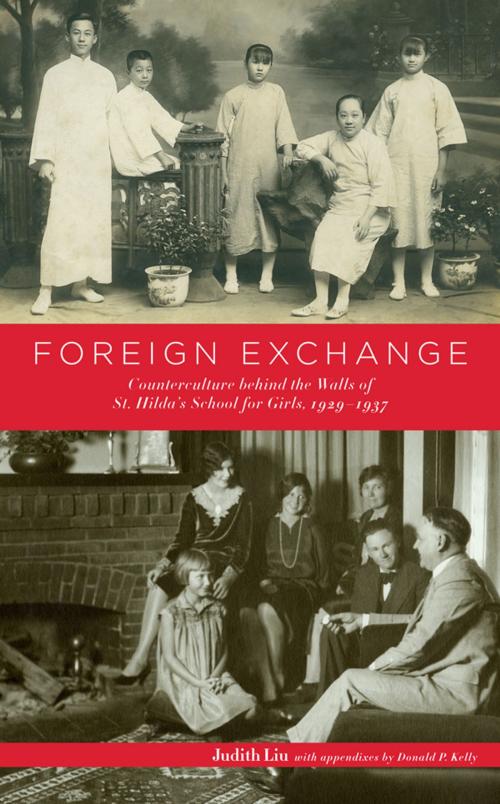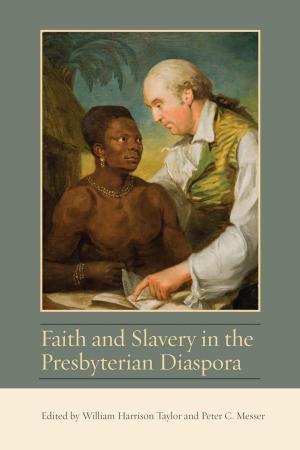Foreign Exchange
Counterculture behind the Walls of St. Hilda's School for Girls, 1929–1937
Nonfiction, History, Reference, Study & Teaching, Asian, China, Modern, 20th Century| Author: | Judith Liu | ISBN: | 9781611460056 |
| Publisher: | Lehigh University Press | Publication: | March 28, 2011 |
| Imprint: | Lehigh University Press | Language: | English |
| Author: | Judith Liu |
| ISBN: | 9781611460056 |
| Publisher: | Lehigh University Press |
| Publication: | March 28, 2011 |
| Imprint: | Lehigh University Press |
| Language: | English |
Foreign Exchange: Counterculture behind the Walls of St. Hilda's School for Girls, 1929-1937 is the story of Yeh Yuanshuang and Dorothea Kingsley Wakeman and their experiences at the American missionary school. Founded in 1875, the school that would become St. Hilda's School for Girls was intended to provide a strong, Christian education for its students. Daily student-teacher interactions, however, created an environment that allowed for a foreign exchange which led to the creation of a new culture that subverted both American and Chinese gender constructs. The walls that surrounded the St. Hilda's compound not only served to protect the school from outside danger, but to also create a space where new gender expectations could be nurtured away from the gaze of prying eyes. Thus, the American teachers as well as the Chinese students were acculturated and socialized in ways that liberated them from their respective patriarchal situations. For Dorothea, serving as a teacher allowed her to remain single yet still be engaged in a professional career that would not be as socially stigmatizing as it would be if she remained at home. As a teacher at St. Hilda's, not only was she educating a future generation of Chinese women, but as an independent woman who served in an important position, she was an example for the girls at St. Hilda's what women could do when given an education. For Yuanshuang, her education provide her with the means to aspire to roles outside the culturally prescribed positions as daughter, wife, and mother by giving her the intellectual tools that enabled her to find work as a teacher at the start of the War of Resistance against the Japanese. Her involvement in school activities developed self-reliance, independence, and leadership skills that served her both in China and eventually in the United States. Her education socialized her to American values and customs so that when she arrived in the United States, she was able to adapt readily. Yuanshuang and Dorothea's stories also reveal the impact of the modern world on their parents' generation. Dramatic changes in both the United States and China provided cracks in the patriarchal walls of their respective countries, and book discusses the responses by their respective families to these changes. Judith Liu weaves together interviews of not only Yuanshuang and Dorothea, but also of St. Hilda's teachers and students, never-before published letters Dorothea wrote to her parents, and extensive archival research to tell their stories as well as the history of St. Hilda's. This book will be of interest to not only to scholars in Asian Studies, history, religious studies, gender studies, and those who teach ethnographic research methods but also to any reader who wishes to know more about China and the United States during that period of time.
Foreign Exchange: Counterculture behind the Walls of St. Hilda's School for Girls, 1929-1937 is the story of Yeh Yuanshuang and Dorothea Kingsley Wakeman and their experiences at the American missionary school. Founded in 1875, the school that would become St. Hilda's School for Girls was intended to provide a strong, Christian education for its students. Daily student-teacher interactions, however, created an environment that allowed for a foreign exchange which led to the creation of a new culture that subverted both American and Chinese gender constructs. The walls that surrounded the St. Hilda's compound not only served to protect the school from outside danger, but to also create a space where new gender expectations could be nurtured away from the gaze of prying eyes. Thus, the American teachers as well as the Chinese students were acculturated and socialized in ways that liberated them from their respective patriarchal situations. For Dorothea, serving as a teacher allowed her to remain single yet still be engaged in a professional career that would not be as socially stigmatizing as it would be if she remained at home. As a teacher at St. Hilda's, not only was she educating a future generation of Chinese women, but as an independent woman who served in an important position, she was an example for the girls at St. Hilda's what women could do when given an education. For Yuanshuang, her education provide her with the means to aspire to roles outside the culturally prescribed positions as daughter, wife, and mother by giving her the intellectual tools that enabled her to find work as a teacher at the start of the War of Resistance against the Japanese. Her involvement in school activities developed self-reliance, independence, and leadership skills that served her both in China and eventually in the United States. Her education socialized her to American values and customs so that when she arrived in the United States, she was able to adapt readily. Yuanshuang and Dorothea's stories also reveal the impact of the modern world on their parents' generation. Dramatic changes in both the United States and China provided cracks in the patriarchal walls of their respective countries, and book discusses the responses by their respective families to these changes. Judith Liu weaves together interviews of not only Yuanshuang and Dorothea, but also of St. Hilda's teachers and students, never-before published letters Dorothea wrote to her parents, and extensive archival research to tell their stories as well as the history of St. Hilda's. This book will be of interest to not only to scholars in Asian Studies, history, religious studies, gender studies, and those who teach ethnographic research methods but also to any reader who wishes to know more about China and the United States during that period of time.















